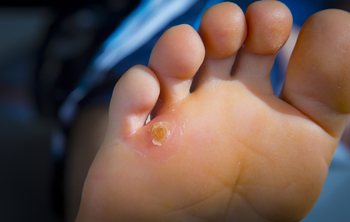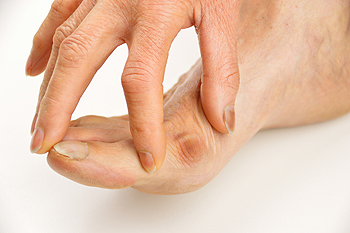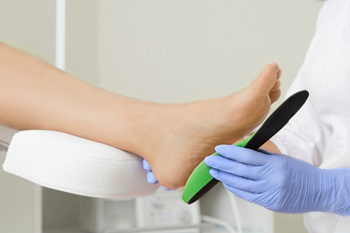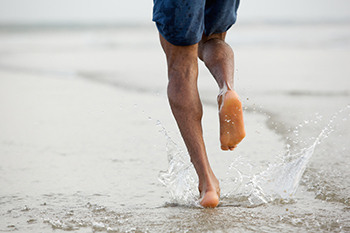 An ingrown toenail is noticeable when the toenail grows into the surrounding skin. This is a condition that can cause severe pain and discomfort, and can occur for a variety of reasons. These can include genetic factors, wearing shoes that do not fit properly, or it may happen if the toenail has endured an injury. Common symptoms many patients have include swelling, redness, and soreness in the surrounding area. It may feel better if you soak the affected toe in warm water, as this can help to soften the area so the nail can separate from the skin. If you have developed an ingrown toenail, please speak to a podiatrist as quickly as possible so the correct treatment can begin.
An ingrown toenail is noticeable when the toenail grows into the surrounding skin. This is a condition that can cause severe pain and discomfort, and can occur for a variety of reasons. These can include genetic factors, wearing shoes that do not fit properly, or it may happen if the toenail has endured an injury. Common symptoms many patients have include swelling, redness, and soreness in the surrounding area. It may feel better if you soak the affected toe in warm water, as this can help to soften the area so the nail can separate from the skin. If you have developed an ingrown toenail, please speak to a podiatrist as quickly as possible so the correct treatment can begin.
Ingrown toenails can become painful if they are not treated properly. For more information about ingrown toenails, contact one of our podiatrists of Foot Health Center of Merrimack Valley. Our doctors can provide the care you need to keep you pain-free and on your feet.
Ingrown Toenails
Ingrown toenails occur when a toenail grows sideways into the bed of the nail, causing pain, swelling, and possibly infection.
Causes
- Bacterial infections
- Improper nail cutting such as cutting it too short or not straight across
- Trauma to the toe, such as stubbing, which causes the nail to grow back irregularly
- Ill-fitting shoes that bunch the toes too close together
- Genetic predisposition
Prevention
Because ingrown toenails are not something found outside of shoe-wearing cultures, going barefoot as often as possible will decrease the likeliness of developing ingrown toenails. Wearing proper fitting shoes and using proper cutting techniques will also help decrease your risk of developing ingrown toenails.
Treatment
Ingrown toenails are a very treatable foot condition. In minor cases, soaking the affected area in salt or antibacterial soaps will not only help with the ingrown nail itself, but also help prevent any infections from occurring. In more severe cases, surgery is an option. In either case, speaking to your podiatrist about this condition will help you get a better understanding of specific treatment options that are right for you.
If you have any questions please feel free to contact one of our offices located in North Andover, and Tewksbury, MA . We offer the newest diagnostic and treatment technologies for all your foot and ankle needs.









 Cuboid syndrome
Cuboid syndrome




